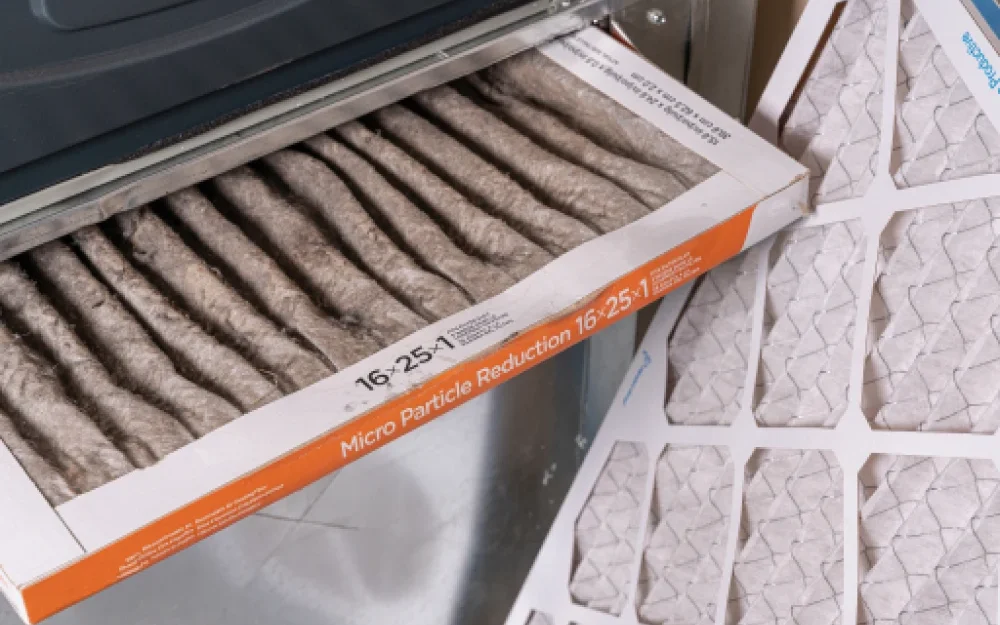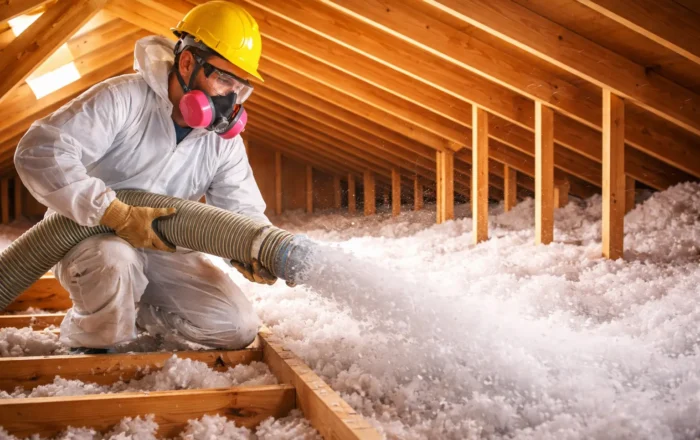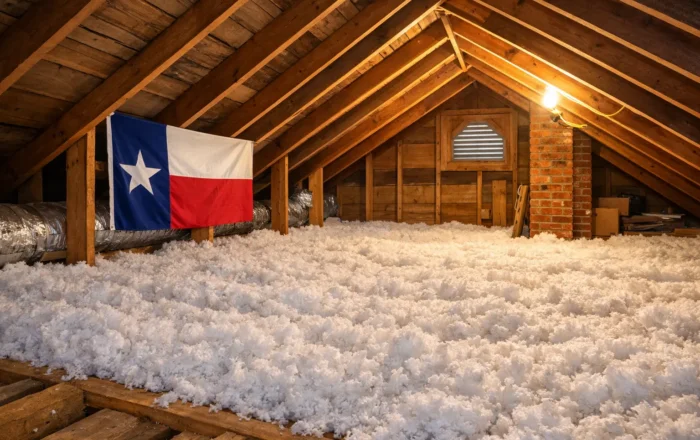When to replace your HVAC air filter
Air filters should be changed every 30-90 days. Visually inspect your air filters monthly to determine when they need to be replaced with a new, clean filter. The general rule is 30-90 days, but the frequency of how often to swap our your air filters can vary based on a few factors:
- The type of air filter: Higher quality air filters, like those that are pleated, last longer than the more affordable alternatives, like fiberglass filters.
- If you have pets: If you have cats or dogs or both, you will want to change your air filter more often than someone who owns fish. Pet hair clogs filters faster.
- If you have allergies, asthma, or other lung-related complications: To make breathing easier and to reduce any allergy symptoms, you’ll want to change the filter more frequently.
- If you have children: Changing the air filter more often can help keep your kids healthy – this is especially true for infants and toddlers.
- The size of your home: Larger homes filter more air than smaller homes, and therefore require air filter replacements more.
- The current season: During spring and fall, your HVAC system runs less often, so there is less air being pushed through. This reduces the need to replace the air filter at those times.
Why should you replace your air filter?
Changing your air filter regularly is beneficial to your health, helps reduce your electricity bill, and helps prevent a complete HVAC system failure.
- Health benefits: Every time you breathe in, you’re not just inhaling oxygen – you’re also bringing dust particles, allergens, and other potential contaminants into your lungs. When air filters are dirty and clogged, they can no longer effectively capture these bad air actors. This decreases the air quality within your home.
- Lower electricity bills: Clogged air filters can increase the energy consumption of an air conditioning system by 15%. During the summer, this can be a real pain to your wallet when the energy bill comes each month. Especially in Texas!
- Avoid complete HVAC failure: When you leave a dirty filter in for too long, you are causing your HVAC system to work overtime. The harder your system works, the shorter its lifespan. If you want to prolong your heating and cooling system’s life, change the filters often.
What is the best air filter?
The best air filters are pleated and have high MERV ratings. Make sure to check that you are buying the correct size air filter as different systems require different dimensions.
What Is a MERV Rating?
MERV stands for minimum efficiency reporting value. A MERV rating measures the effectiveness of an air filter at removing particles and contaminants from the air. The scale measures air filters from 1-20, with 20 representing the best value. Look for a filter that has a MERV rating of at least 8-10.
How to change an air filter
Follow these steps to replace your dirty air filter:
- Switch off your air-conditioning system.
- Locate your air filter.
- Take out the filter. You shouldn’t require any tools to remove the filter. Most filters simply slide and in out of the HVAC unit.
- Inspect the filter and determine if it should be replaced. If the filter is white, then it can stay in the system. If it has turned gray and there are visible layers of dust or pet hair, it’s time to remove that filter.
- Get the correct replacement filter. The size is usually printed on the filter. Take a photo to remember the size for future purchases. While you’re at it, purchase a few extra filters to have on hand.
- Install the new filter. You’re all set! We recommend setting an alert on your smartphone so you remember to check again in 30 days.
Graham Lumley, Digital Marketing Manager at BKV Energy, leads digital and traditional marketing strategies, focusing on educating Texans about the state's deregulated energy market. With over 8 years of marketing experience, he creates content to help consumers understand and save on their energy bills, bringing a fresh and dynamic approach to the industry.


